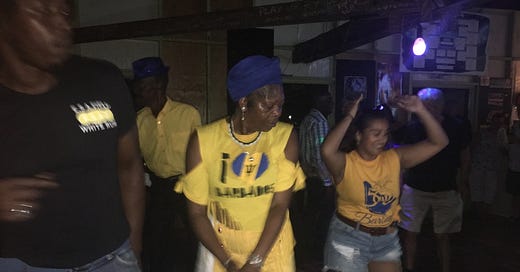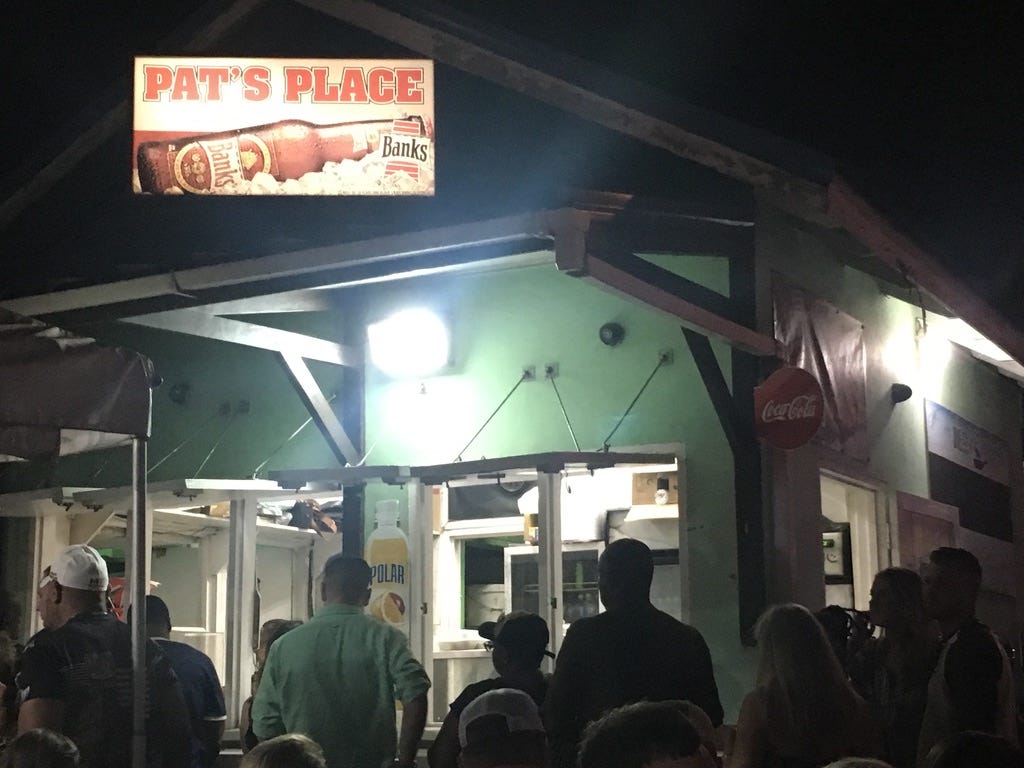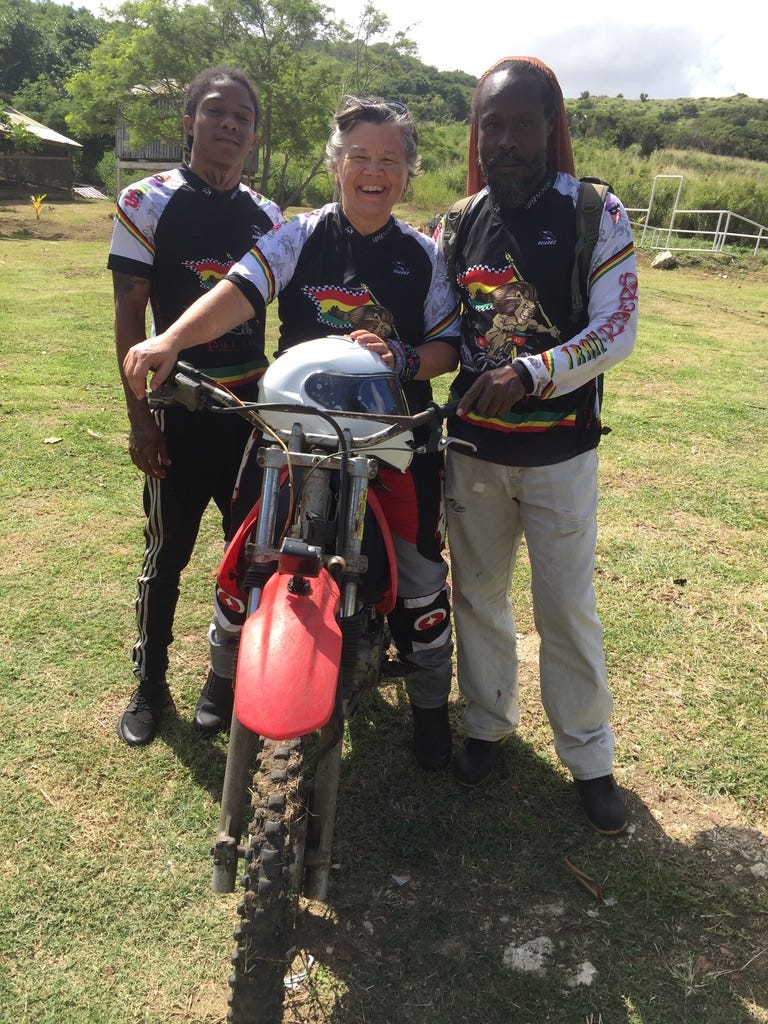In the children’s wing of the Barbados Museum and Historical Society, set among posters about healthy eating and exercise, an anatomy mannequin sits on a low shelf with several of its removable organs pulled away and resting beside it. I’m sure you’ve seen these mannequins before, as have I.
But this one is different. The parts of the body that haven’t been sectioned for teaching purposes have a black complexion. This shouldn’t be a big deal, after all, skin pigments differ. And yet—yet!—I’m surprised to see a black science mannequin. My surprise embarrasses me because, well, why haven’t I noticed before that they’re always white? Yes, whiteness is the American default, but why has it taken me so long to see its depth and breadth?
Focusing on the left side of the face—the skull—I couldn’t tell from bone structure alone that the nose, lips, and hair on the right side would depict someone of African descent. I’m saying that the very features we make such a big deal about are superficial—insignificant—when it comes to the fundamental biology that makes us all human cousins.

I always learn a lot from children’s museum exhibits; this one taught me something about myself. I’m not as progressive as I’d been giving myself credit for.
This is not my first sojourn in Barbados. I spent four days there as a journalist in 2018. Outside the airport, I quickly noticed I was surrounded by Black people everywhere I went, which is not my daily experience at home. Barbados tourism arranged for a Bajan driver named Emerson to get me from place to place, saving everyone the danger of me driving on the left side of the road in unfamiliar territory. Emerson’s family goes back many generations and he must know everyone we encountered. So there we were, a Black man and a white woman, touring the sites and taking our meals together, and I never got a dose of side eye. The fact that I notice this says a lot about me and my culture.
Our Friday itinerary includes the weekly fish fry in the village of Oistens, where over 1000 locals gather to eat, drink, dance, and shop among the craft tents. I am outnumbered by Black people 50:1 and initially feel uneasy. I’m never outnumbered like this at home. Is this unease anything like African-Americans experience in their daily lives? No, it can’t be. I’m in no danger of being mis-perceived if I laugh too loudly. No one clutches their child or handbag as I pass by. Black Americans experience these slights daily—and worse, far worse.
Emerson finds a place for us in the sea of picnic tables. I hold his spot while he stands in line at “Pat’s Place” for a takeout container of flying fish, fried plantains, and coleslaw. In time, I drop my guard and enjoy the lively conversations at the picnic tables and the loud music and limber dancers on the main stage, feeling the acceptance of everyone around me. I’m not invisible, but neither am I noteworthy in Barbados. I love this feeling.
On our last day together I felt comfortable enough to wade into the topic of race with Emerson. “If I may, I’d like to ask if you see a difference between Black Americans’ and Black Bajans’ racial attitudes about white people.”
I held my breath, concerned that I might have blown up the warm relationship we had established.
Emerson replied quickly. “Barbados is a Black country. We run everything. Black Americans are in the minority. You can’t equate the two experiences.”
Whoa. A simple, elegant summary that smacked me upside the head, even after a lifetime of hearing African-Americans complain about their treatment at the hands of white power. In Barbados, I finally saw the ideal that African Americans might daydream of: living in a Black country governed by a Black woman president and a Black woman prime minister under laws enacted by Black legislators and enforced by Black judges. A country with Black teaching and medical professionals, Black shopkeepers. Black police.
Look, I’m a traveler, not a policy wonk or social reformer. I’m not pointing my finger at anyone besides myself when I say I need remember not to think or say that Black people should be less sensitive/tougher/more patient, or whatever judgment I grew up believing. My goal in sharing this Bajan experience is to encourage Americans to keep fighting our own personal demons. Just as I am fighting mine.
There is a better world on the other side of our ingrained responses and behaviors. I’ve seen a glimpse of it in Barbados.







Thank you for sharing this eye- and mind-opening experience with your readers. You've opened my heart a bit wider, as well.